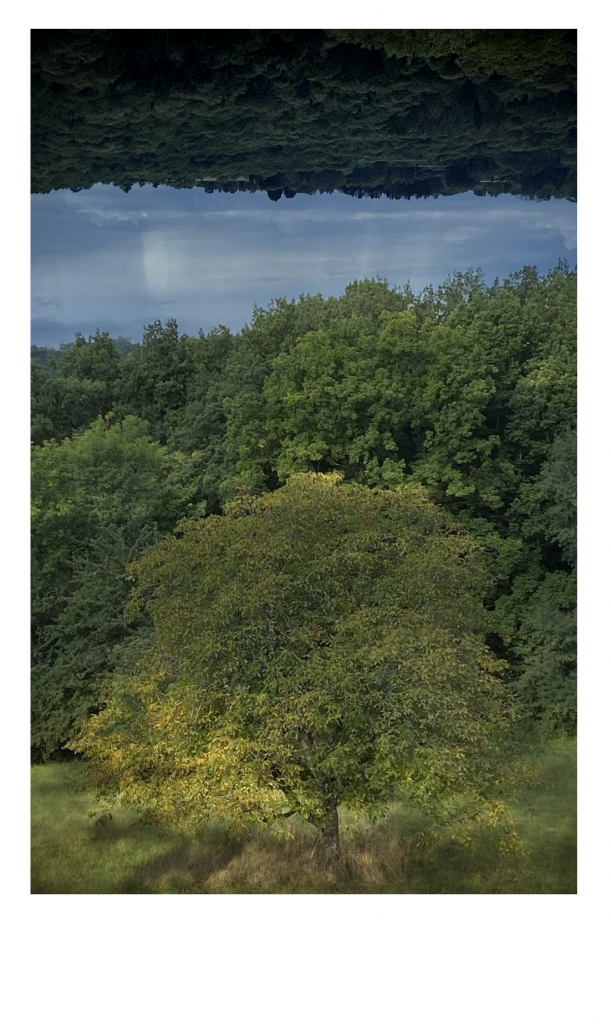
Earth, thick with its own rotting history, stirs secretly beneath the last thin crust, invisible to all but the most patient observers. Roots muscle blindly through earth, seeds transact their private bargains with the rain. Not even the woodpecker troubles the process, his mechanical persistence only a background to the true work. There are no epics here, no declarations, only the underground certainty that something is happening, something inevitable and green and not yet told.
So what about humanity? Why, when faced with a comparable need for transformation, do people seem to require so much noise, so much theatre, to slough off the deadness and step blinking into whatever comes next? The world outside is content to manage its revolutions in secret, with only a subtle rearrangement of shadows. But humans, standing at the exit of every winter, can’t help but drag their grief and their hungers into the square, banging pots and blowing horns as if to demand a notice from some unresponsive sky. It is as if, lacking the silent assurance of return, people must manufacture their evidence for hope by shouting it loud enough to scare away the memory of the world’s indifference.
It’s a question as old as the silence it attempts to answer: Is it shame, or is it hope, that forces people to be so noisy in the face of quiet miracles? Perhaps it is neither, or both tangled together like last year’s dead vines, refusing to clear the way for anything simple. Shame for having needed so long to change at all, hope that the old energies can still be summoned and redirected. Or perhaps the answer is not in the asking, but in the persistence of return itself, the fact that each season does come again, not as a blank rebirth but as a scarred and altered surface, learning to live with its history.
There is a comfort in this, if one is willing to see it: The way that nothing truly vanishes, that even the failed revolutions and collapsed ambitions compost themselves back into the loam, enriching the next attempt. Every act of drama is itself a kind of mulch, covering up the evidence of an old life so that the new one can risk a beginning. People keep performing their necessary scenes, their noisy catalogues of injury and intent, not because they believe it will change the outcome, but because it is the closest approximation they have to the silent, irresistible logic of natural return. Even their scars are a kind of preservation, a mapping of what mattered most in the moment of rupture.
But still, here is a difference. Nature’s cycles are indifferent to their narrative, while people are desperate to shape theirs into stories, to find in every collapse the seed of a plausible redemption. It is not enough to return; one must return changed, and with witnesses. The drama is not a flaw but a function, a way of conjuring meaning from mute recurrence, insisting that the next time will be different even as it rhymes perfectly with every time before.
Perhaps this is the only genuine miracle humans are permitted: The ability to remember and to anticipate, to be both haunted and hopeful in a single gesture. They are not like the trees or the grass, content to wake each year as if nothing had ever been lost. They carry their evidence, their failures and their brief triumphs, into every new spring. The deadness is never fully gone; it rides on their shoulders and in their blood. But it is also what enables the next step, what makes any return possible at all.
And so, in the end, the difference between a person and a patch of earth is not so great after all. The distinction, if it exists at all, is largely a matter of performance. Both collect themselves from what is shed and what is lost, both hold fast to the old injuries and the exhausted nutrients, both wake each morning with the same compulsion to expand, to push outward and upward, even after so many seasons of disappointment. There is no possibility of starting over, not really; everything that rises does so layered with the compost of what preceded it, every new shoot a palimpsest, every step forward a negotiation with what came before. The world offers no true clean slate, only the accumulation of scars and seeds, all tangled together in a deepening, not chartable present.
There are worse ways to be alive and quieter ways, too…
© KD.W.Heim

Leave a Reply